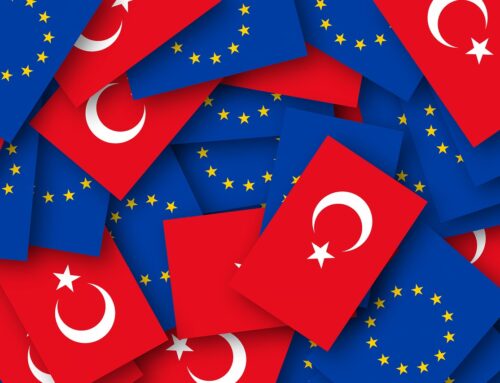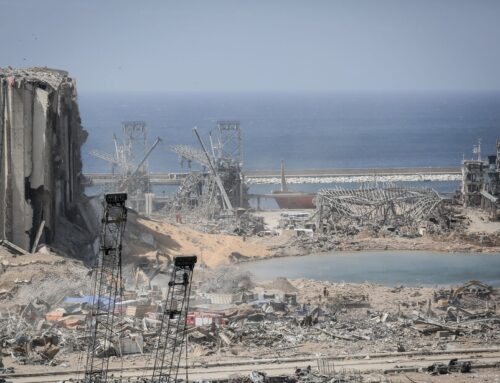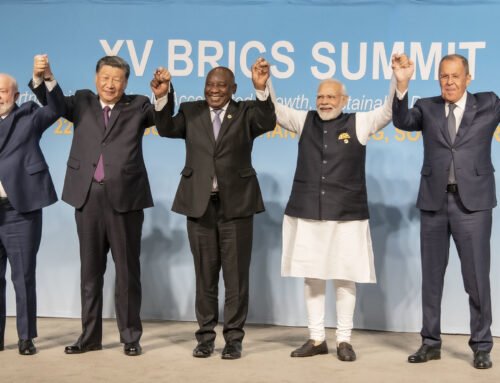PULASKI POLICY PAPER: The Reason Behind Destabilisation of Moldova (Ihor Havrylyuk)
Autor foto: Domena publiczna

The Reason Behind Destabilisation of Moldova
March 22, 2023
Author: Ihor Havrylyuk




PULASKI POLICY PAPER: The Reason Behind Destabilisation of Moldova (Ihor Havrylyuk)
Autor foto: Domena publiczna
The Reason Behind Destabilisation of Moldova
Author: Ihor Havrylyuk
Published: March 22, 2023
Pulaski Policy Paper no 15, March 22, 2023
The Republic of Moldova has received a significant amount of international media and experts’ attention in the past two months. The primary reason is the fear that Russian aggression against Ukraine might spill over into the republic to prevent it from drifting into the West. It is crucial to understand the scale of threats posed to Moldova by the Kremlin’s different scenarios as well as implications for the security situation in Ukraine.
Factors that facilitate Kremlin’s hybrid war against Moldova
Among all post-Soviet republics traditionally deemed by Russia as “near abroad,” Moldova is probably one of the most susceptible to Russian malign activities due to a number of factors.
The primary reason is geopolitical, as despite gaining independence from the Soviet Union in 1991, political and economic ties between Chisinau and Moscow as well as long-lasting dependencies remained preserved. The idea of cooperation with the European Union, however, has also been attractive to Moldovan politicians of different leanings, primarily due to economic opportunities arising from it. Whereas Russia was actively promoting different integration projects among former Soviet republics, hoping to dominate the region once again, the EU was not ready to grant Moldova a clear prospect of future membership. As a result, for the past 30 years the country has been balancing between Russia and the EU in the hope of securing the most gain from both sides.
For decades strong pro-Russian leanings have been present in the Moldovan politics. Currently Kremlin’s interests are represented by the Bloc of Communists and Socialists and Shor Party. The last one, together with the Movement of People, is behind the widespread anti-government protests that have been taking place in Moldova since September 2022. The primary demands of the demonstrators are full subsidies for citizens’ winter energy bills and ceasing “involving the country into the war with Russia.”
Presence of a Russian-speaking minority in Moldova serves Moscow a good reason to interfere into the country’s internal affairs under the pretext of protecting its “fellow countrymen.” Precisely for this reason Soviet former 14th Guards Army that stationed on the left bank of then Soviet Moldova backed separatists from the Transnistrian Moldovan Republic (PMR) in a domestic conflict lasting from 1990 until 1992. Since then Russian troops have illegally remained there and calls on Russia to remove them have been ignored. Even though a military contingent of 1,500 of Russian soldiers – mainly composed of locals – does not pose a huge military threat to Moldova, their sole presence undermines Moldovan sovereignty and blocks a pathway to the peaceful settlement of the 30-years old conflict.
Increasingly, politicians from Gagauzia, an autonomous territorial unit in Moldova, also play a destabilising role in the country, what ultimately acts into Putin’s favour. Russian media claim that there is a growing dissatisfaction of the Turk minority with the authorities in Chisinau, as the autonomy sees its future in a close relationship with Russia and Turkey.[1]
Country’s formal neutrality combined with years of corruption and underfunding have left Moldova without reliable armed forces that could potentially deter country’s foes. Current Chisinau’s defence spending is only 25,5 million USD and 90% of military equipment remains outdated as defence minister Anatolie Nosatii reports.[2] The most recent incidents involving Russian cruise missiles crossing into Moldova’s airspace show that the armed forces are not able to protect the country’s skies.[3]
Economic relations between Moldova and Russia are highly asymmetrical and featured by numerous dependencies. Undoubtedly, the most critical one is Chisinau’s heavy reliance on imports of Russian gas. For decades Gazprom was selling natural gas to Moldova on preferential terms as well as was lenient on debts as long as the latter remained in Moscow’s geopolitical orbit. Lack of policy aimed at diversification of energy sources put the country on a brink of energy collapse first in 2021 and then a year later. The issue of electricity supplies is also of utmost importance to Moldova, as the country is not able to independently satisfy its energy needs. The primary source of electricity in Moldova have been Transnistrian plants powered by Russian gas. Despite the growing tensions in the country, Chisinau continues to purchase necessary electricity from the separatist region primarily due to economic reasons.[4]
For decades Kremlin’s propaganda was transmitted in Moldova and it only intensified with the outbreak of the full-scale war in Ukraine. This laid down solid ground for considerable pro-Russian leanings in the Moldovan society and, oppositely, reluctance towards the EU. For example, a poll conducted by WatchDog and IPIS in May 2022 shows that the idea of joining the EU enjoys support of 50% of the polled, while 36,8% perceive it negatively. In case of NATO membership the results are even more pronounced: 54,4% are against, while only 26,9 are in support of it.[5]
Rationale behind the Kremlin’s actions
There are particular reasons why the Kremlin is determined to facilitate a coup in Moldova and bring loyal people to power. Firstly, installing a pro-Moscow administration in Chisinau would undoubtedly halt the country’s course on integration with the EU. In June 2022 Moldova and Ukraine were awarded EU candidate status, a historical move that bolstered the two Eastern European states’ hopes for future membership. Certainly, it is perceived by Putin as a threat to the Russian dominance in the region and as well as to his power and image.
Secondly, Russian leadership is interested in igniting a new point of instability at NATO’s borders to divert the attention of the West from Ukraine. Since the attempts to provoke a new war in the Balkans last year, namely between Serbia and Kosovo, failed, the Kremlin will be further pushing a violent scenario in Moldova. This will also inevitably distract Ukraine and cripple some of the its army units, that could be used in the East.
Thirdly, Moscow will regain the ability to conduct rotation of its forces stationed in the separatist Transnistria. In 2015 Kyiv denounced the treaty that allowed Russia to funnel its troops, weapons and ammunition to the separatist region via the territory of Ukraine. Currently the only route to breakaway region leads through the airport in Chisinau. Moldovan administration takes measures to make troop reinforcement of Operational Group of Russian Forces (OGRF) highly complicated and transfer of any weapons impossible. Since local conscripts make up 90% of the soldiers and they seem to lack motivation to join the fighting against Ukraine, any plans to involve the former 14th Guards Army (approx. 1,500 troops) into an attack on Ukrainian territories are unlikely without substantial reinforcement.
Last but not least, the process of reducing Moldova’s energy dependency on Russia initiated by the current administration, diminishes Gazprom’s ability to blackmail the government in Chisinau. Pro-Russian actors unanimously claim that they will sign a new long-term gas contract with Russia to curb high energy bills and restore ostensible stability.
Moscow’s attempts to destabilise Moldova and Chisinau’s response to them
First signs of Russia’s hybrid war against Moldova might be traced back to 2020, after Maia Sandu’s victory in presidential elections and her immediate calls on Russia to withdraw its illegally stationed troops in PMR. Kremlin’s spokesperson Dmitriy Peskov warned then that any attempts to change the status quo in the breakaway region “might cause serious destabilisation.”[6] Following PAS’ victory in the 2021 parliamentary elections and Sandu’s participation in the first Crimea Platform Summit further steps aimed at discrediting pro-Western authorities in Chisinau were undertaken by Moscow.[7] At the backdrop of worsening relations and expiring gas contract in September 2021, Gazprom threatened to leave Moldova without gas if the latter did not pay its 709 million USD debt and did not sign a new contract from the 1st of December.[8] As a result, both parties agreed a new 5-years deal, under which new bills will be dependent on the fluctuating spot prices of gas and oil rather than a fixed price.[9]
The already tense relations between Chisinau and Moscow have only compounded with the outbreak of full-scale war in Ukraine. While President Sandu condemned Russian aggression, she also reaffirmed her country’s neutrality in third states conflicts. Moreover, Chisinau did not join anti-Russian sanctions imposed by the West, as it could have harmed its own fragile economy and energy sector. At the same time Moldova provided shelter to tens of thousands of Ukrainian refugees. So instead of playing a destabilising role, or facilitating invasion like Belarus, Moldova has maintained a friendly relationship with Ukraine benefiting both sides.
Fears that Moldova might be the Kremlin’s next target already sparked a few months after the invasion of Ukraine. In April 2022 vice commander of Russia’s Central Military District informed that full control of the Donbas would allow to clear the way for a land bridge between the occupied Crimea and Transnistria, where seemingly Russian-speakers’ rights were violated. At the same time Ukrainian intelligence signalled that Moscow was preparing an attack on Moldova with the involvement of airborne forces stationed in the Crimea.[10] In April authorities in Tiraspol, capital of the self-proclaimed PMR, informed about ‘terrorist attacks’ conducted in the region, which was called in Russian Duma an attempt to involve the country into hostilities in PMR.[11] However, as Putin and his generals were probably more focused on regrouping their troops after the lost campaign in the north of Ukraine, tensions over PMR decreased.
New wave of destabilisation shook the country in autumn 2022, amidst uncertainty whether Europe would be able to endure the crisis caused by Russia energy blackmail. Ilan Shor, a pro-Russian opposition leader the self-named party, managed to remotely stage widespread protests in the country while being in exile in Israel. In 2017 Shor was convicted of fraud over the theft of 1 billion US dollars and sanctioned by the US Treasury in 2022 for his malign activities aimed at destabilising his country.[12] Using popular discontent with growing energy bills and fears that Moldova might be involved in the conflict with Russia, his party hoped to topple Moldova’s pro-European authorities. The protests are still taking place in the capital, however, they seem to have lost momentum as their peak was in October-November 2022, just when with the fall of temperatures energy bills skyrocketed. Western as well as Ukrainian intelligence sources confirm Shor’s affiliation with Russia’s FSB, more specifically facts of obtaining funds by his party and involvement of Russian political strategists advising on his anti-government campaign.[13] Russian media as well as politicians also create a positive image of Ilan Shor, a figure who could restore friendly relations between Chisinau and Moscow and secure a long-term gas deal with Gazprom. In an bid to curb Russian disinformation, in December 2022 Moldova’s Commission for Exceptional Situations suspended the broadcast licences of six television channels affiliated with Ilan Shor.
Amid difficult economic situation president Sandu’s party experienced a decrease in popularity – between June 2021 and November 2022it dropped from 33,7% to 24,6%. .[14]
In a bid to reverse this negative trend, a cabinet reshuffle took place: after 18 months in office Natalia Gavrilita and a few other ministers resigned. A national legislature, where PAS continues to hold a strong majority – 63 out of 101 seats – appointed a new prime minister – Dorin Recean, who was earlier an interior minister and presidential aide.[15] The appointment of Recean –a person with experience in security — might help to sustain stability in Moldova.
Among the most profound side effects of the Putin’s invasion of Ukraine are threats to Moldova’s airspace, which exert additional pressure on Chisinau. Country’s air defence is not capable of shooting down Russian cruise missiles crossing Moldovan air space on their way to Ukraine. Since the outbreak of the full-scale war in Ukraine missiles, or their debris, have fallen in the Moldovan territory at least four times, with the last incident being reported on February 16, 2023. Such incidents serve at least two purposes: to intimidate the population of Moldova with the prospect of an imminent war and to undermine the current administration’s image due to its inability to protect the citizens as well as the country’s sovereignty.
Moscow’s aggressive rhetoric towards Moldova bears strong similarities with the one aimed at Ukraine just before the outbreak of the full-scale invasion. For example, Russia’s foreign minister Sergei Lavror stated that Chisinau is following in Kyiv’s footsteps[16] and MFA’s spokesperson Maria Zakharova called on the republic to discontinue its course on becoming “anti-Russia.”[17] Identical disinformation accompaniment preceded the invasion in Ukraine, as the Russian officials had to somehow explain their aggressive plans to the domestic public.
On February 13, 2023 president of the country Maia Sandu made a public statement where she accused Russia of preparing a plot to overthrow legitimate authorities in Chisinau. According to the plan, militarily trained people disguised as civilians were meant to carry out riots and attack on government buildings.[18] The next day people from Russia, Belarus Montenegro and Serbia, allegedly travelling to Moldova to watch a football match, were barred from entering the country.
Russian officials together with their Transnistrian proxies continue heightening tensions around Moldova by making increasingly more ridiculous accusations against Ukraine. On February 23 Russian Ministry of Defence informed that Ukraine “was preparing a military provocation against PMR in the nearest future.”[19]Russia’s MFA spokesperson went even further and accused Kyiv of planning another provocation – this time involving radioactive materials.[20] In recent weeks PMR authorities also argued that the Security Service of Ukraine (SBU) had attempted to assassinate the Transnistrian president and conduct a terrorist attack against the OSCE mission.[21] Disinformation that is being spread by the Kremlin is certainly part of the hybrid warfare against Kyiv and Chisinau, but might be also used as a ground for another “special military operation.”
Last month Vladimir Putin cancelled a decree from 2012 outlining measures for realising Russian foreign policy, which, among others, committed Russia to seeking a settlement of the Transnistrian issue “based on respect for the sovereignty, territorial integrity and neutral status of the Republic of Moldova in determining the special status of Transnistria.”[22] While the revocation of this document does not concern Moldova only, it is important to note that after the 2022 invasion of Ukraine Moscow has become more aggressive towards neighbouring states and less prone to seek peaceful resolution of the “frozen” conflicts in the former Soviet space.
Conclusions
- By destabilizing Moldova, Putin strives to achieve two main goals from the his perspective: stop Chisinau’s further integration with the Euro-Atlantic institutions and create source of instability at Ukraine’s South-Western borders. Installing a pro-Moscow loyal regime in the capital will be crucial in achieving both of these goals. It also clears the way for reinforcement of Russians troops in PMR with assault units and offensive weapons and their future involvement in the fighting against Ukraine.
- While the anti-government protests staged by FSB-sponsored Ilan Shor did not bring about the change of authorities in Chisinau during the winter season, Russia will be exploring new ways of facilitating a coup in the country. It is to be expected that they will be more violent and might involve foreign mercenaries from the Wagner group. An increase of number of male foreigners entering Moldova has been detected by the border force in Moldova, which signals that Moscow may prepare new provocations in the country.[23]
- The future still remains uncertain as Maia Sandu and her party still have to implement substantial judicial, anti-corruption, rule of law reforms to diminish the influence of corrupted politicians and oligarchs – a task that pro-Western parties failed to accomplish in the 2010s. Among the major problems is the lack of competent and uncorrupted bureaucratic apparatus that will be able to effectively implement reforms .
- “Special military operation” aimed at Moldova remains a less likely option at the moment, as it would have to involve complicated logistical processes, something that Russia failed with in Ukraine. At the same time, in order to further intimidate Moldovan population and undermine government’s position Russian missiles will continue appearing in the country’s airspace.
- The military security of Moldova will continue being dependent on Ukraine, as the idea of linking the occupied Ukrainian territories in the South-East with Transnistria still remains attractive to Russia’s political and military leadership and currently only Ukraine can prevent Russian from further military advancements. The political and military leadership in Kyiv is well-aware of the threat posed by the OGRF and will ‘respond with a blow’, as president Volodymyr Zelensky stated in a joint press conference with Maia Sandu on June 27, 2022
Author: Ihor Havryluk, advocacy specialist Casimir Pulaski Foundation
The Paper was prepared in cooperation with International Centre for Ukrainian Victory
[1] Светлана Гамова, “Кишинев рискует получить еще одно Приднестровье”, Новая Газета, February 12, 2023, https://www.ng.ru/cis/2023-02-13/1_8659_moldova.html
[2] „Міністр оборони Молдови заявив, що 90 відсотків військової техніки країни застаріло”, Радіо Свобода, October 21, 2022, https://www.radiosvoboda.org/a/news-moldova-viyskova-tekhnika/32095196.html
[3] Luke Harding, “Russian cruise missiles crossed into Moldova and Romania, says Ukraine”, The Guardian, February 10, 2023, https://www.theguardian.com/world/2023/feb/09/russia-launches-drone-and-missile-attacks-in-south-and-east-ukraine
[4]„Молдова продлила контракт на поставку электроэнергии из Приднестровья на март”, Neftegaz.ru, February 28, 2023, https://neftegaz.ru/news/energy/771573-moldova-prodlila-kontrakt-na-postavku-elektroenergii-iz-pridnestrovya-na-mart/
[5]Екатерина Дубасова, „Путин виноват. Или не Путин? Что думают жители Молдовы о войне в Украине, и что их волнует”, Newsmaker, May 10,2022, https://newsmaker.md/rus/novosti/putin-vinovat-ili-ne-putin-chto-dumayut-zhiteli-moldovy-o-voyne-v-ukraine-i-chto-esche-ih-volnuet/
[6]Санду требует вывести войска РФ из Приднестровья. У Путина угрожают „дестабилизацией”, Ліга.Новости, November 30, 2020, https://news.liga.net/world/news/sandu-trebuet-vyvesti-voyska-rf-iz-pridnestrovya-u-putina-ugrojayut-destabiliaztsiey
[7] „Молдова без російського газу. За що може мститись Кремль і яка роль України”, BBC Україна, October 26, 2021, https://www.bbc.com/ukrainian/news-59052145
[8]„»Газпром« остановит поставки газа в Молдавию при отсутствии контракта с 1 декабря” Интерфакс, October 23, 2022, https://www.interfax.ru/business/799100
[9] Gabriel Gavin, “Putin’s war is forcing Moldova to escape Russia’s gas trap”, Politico, June 3, 2022, https://www.politico.eu/article/putin-war-forcing-moldova-escape-russia-gas-trap/
[10] Larisa Brown, Russia ‘is already paving the way for a takeover of Moldova’, The Times, May 1, 2022, https://www.thetimes.co.uk/article/russia-is-already-paving-the-way-for-a-takeover-of-moldova-hl9zg3v7b
[11] „В Думе заявили о попытках втянуть РФ в военные действия в Приднестровье”, Интерфакс, April 26, 2022, https://www.interfax.ru/russia/837916
[12] “Treasury Targets Corruption and the Kremlin’s Malign Influence Operations in Moldova”, U.S. Department of the Treasury, October 26, 2022, https://home.treasury.gov/news/press-releases/jy1049
[13] Catherine Belton, “Russia’s security service works to subvert Moldova’s pro-Western government”, The Washington Post, October 28, 2022, https://www.washingtonpost.com/world/2022/10/28/russia-fsb-moldova-manipulation/
[14]Барометр общественного мнения Республики Молдова, period from 06.2021 to 11.2022, http://bop.ipp.md/ru
[15]Alexander Tanas, “Moldovan parliament approves new pro-Western government”, Reuters, February 16, 2023 https://www.reuters.com/world/europe/moldovan-presidents-nominee-pm-set-be-approved-by-parliament-2023-02-16/
[16] Лавров заявил о желании Запада сделать из Молдавии «следующую Украину», РБК, February 2, 2023, https://www.rbc.ru/rbcfreenews/63db854d9a79474fc4bdf99d
[17]Дмитрий Кулемякин, „Захарова: РФ призывает Молдавию отказаться от превращения страны в анти-Россию”, RG.ru, February 10, 2023 https://rg.ru/2023/02/10/zaharova-rf-prizyvaet-moldaviiu-otkazatsia-ot-prevrashcheniia-strany-v-anti-rossiiu.html
[18] Wilhelmine Preussen, “Russia is planning coup in Moldova, says President Maia Sandu”, Politico, February 13, 2023, https://www.politico.eu/article/moldova-president-maia-sandu-russia-attack/
[19] „Минобороны РФ обвинило Украину в подготовке вооруженной провокации в Приднестровье”, Интерфакс, February 23, 2023, https://www.interfax.ru/world/887510
[20] „Росія вигадала »радіоактивну провокацію« України в Придністров’ї”, Молдова назвала це брехнею, Європейська Правда, March 1, 2023, https://www.eurointegration.com.ua/news/2023/03/1/7157144/
[21] „В Молдове прокомментировали очередную фантазию Приднестровья о »теракте СБУ против ОБСЕ«”, Українська Правда, March 14, 2023, https://www.pravda.com.ua/rus/news/2023/03/14/7393438/
[22] „Подписан Указ о мерах по реализации внешнеполитического курса”, Kremlin.ru, May 7, 2012, http://kremlin.ru/events/president/news/15256
[23] Вера Балахнова, „ (ФОТО) Пограничники не пустили в Молдову члена ЧВК »Вагнер«”, Newsmaker, March 12, 2023, https://newsmaker.md/rus/novosti/foto-pogranichniki-ne-pustili-v-moldovu-chlena-chvk-vagner/





